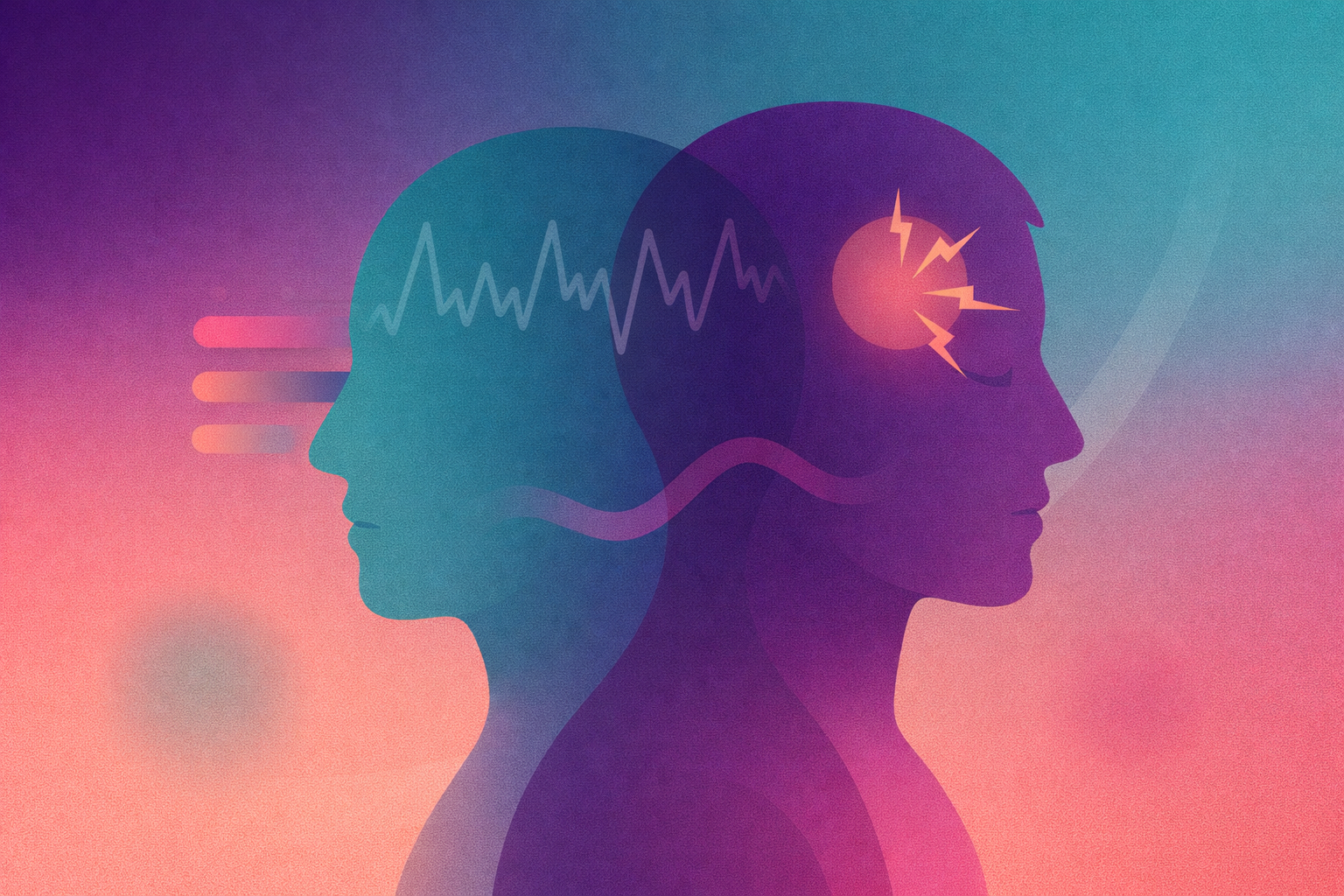LIBRARY
Raising awareness and understanding of ADHD is an essential part of the support we provide. Our doctors are authors and speakers on the subject.
The articles include research and opinions from external healthcare professionals as well as our own doctors’ expert knowledge.
Dopamine Obsession and ADHD: A subtle story
Over the last few years, dopamine has become the internet’s favourite neurotransmitter. It’s blamed for distraction, burnout, social-media addiction, and often invoked in conversations about ADHD. The idea that ADHD is just a “dopamine deficiency” that can be hacked, boosted, or “reset” through tricks like dopamine fasting has a certain appeal. Unfortunately, it’s also a big oversimplification — and sometimes a harmful one.
ADHD and Driving in the UK: What You Need to Know
Driving can be a big step toward independence, but for people with ADHD, there are extra things to consider. This post goes over how ADHD can affect driving, what UK laws require (DVLA), and some tips to help stay safe on the road.
Studying at Home with ADHD: Strategies That Actually Work
Studying with ADHD at home can be tricky — from staying focused to managing time and motivation. The good news is that with the right strategies, you can make studying far more manageable (and even enjoyable). Drawing on insights from the University of Queensland, Birmingham City University, and recent academic research, here’s how to make your study sessions ADHD-friendly.
What’s Involved in a Combined Autism and ADHD Assessment?
Because these two neurodevelopmental conditions frequently co-occur, some individuals are referred for a combined autism and ADHD assessment. But what exactly does that process involve?
Why Collateral History is Crucial When Diagnosing ADHD in Adults
Diagnosing Attention-Deficit/Hyperactivity Disorder (ADHD) in adults is a nuanced and often complex task. Unlike childhood ADHD, where behaviours are typically observed in structured school environments and reported by teachers or parents, assessing for adult ADHD often relies on retrospective self-report. This introduces a significant margin for error—making collateral history an essential part of a robust diagnostic process.
Rejection Sensitivity in People Without ADHD: The Hidden Emotional Vulnerability
Rejection sensitivity is more than just taking things personally; it's a personality disposition that involves an excessive tendency to anxiously expect, readily perceive, and intensely react to social rejection. And for many people—ADHD or not—it shapes emotional wellbeing, relationships, and vulnerability to mental health conditions.
When it may be menopausal ADHD and when it’s not
Is it ADHD — or perimenopause? Memory lapses, poor concentration, and mental fog are common during both perimenopause and adult ADHD, making it easy to confuse the two. This article explores how to tell the difference, why timing and symptom history matter, and why accurate diagnosis is essential. Whether you're newly experiencing cognitive changes or questioning a lifelong pattern, understanding the overlap — and the distinction — can help you find the right support.
ADHD and menopause: A psychological perspective on mental health in midlife
Menopause marks a significant neuroendocrine transition in a woman’s life, but for those with Attention-Deficit/Hyperactivity Disorder (ADHD), this period can bring a sharp intensification of psychiatric symptoms. The interplay between hormonal decline and cognitive-emotional dysregulation presents a unique clinical challenge—one that is frequently underrecognised in both primary care and mental health settings.
Self-compassion & ADHD: Why it matters
Self-compassion & ADHD: Why it matters. In this insightful video, Clinical Psychologist Dr Laura Wade discusses how compassion-focused therapy can support adults with ADHD. From common self-critical thought patterns to practical techniques rooted in the work of Paul Gilbert and Kristin Neff, Laura shares how building a kinder internal voice can improve motivation, reduce shame, and create lasting change. A powerful watch for anyone struggling with negative self-talk.
Thinking about ADHD coaching? Here’s what you need to know
Thinking about ADHD coaching? In this short video, Clinical Psychologist Dr Laura Wade is joined by neurodiversity coach Dr Julie Osborn to explore what ADHD coaching really involves. They discuss how to find a qualified coach, what questions to ask, red flags to watch for, and the kinds of outcomes you can expect. A must-watch for anyone considering coaching as part of their ADHD support journey.
ADHD and Relationships: Tips for Better Communication
Whether you have ADHD or love someone who does, understanding its impact on relationships can help build empathy and create stronger, healthier connections.
ADHD and Attachment Theory: Untangling the Threads
ADHD is often viewed through a lens of executive dysfunction, inattention, and impulsivity. Attachment theory, meanwhile, focuses on how our earliest relationships shape our emotional world and expectations of others. At first glance, these might seem like entirely separate frameworks—but dig a little deeper, and you'll find that they often intertwine in ways that are both complex and deeply human.
ADHD and Access to Work: Support for Neurodivergent Employees
Navigating the workplace with ADHD can be a complex experience. From time blindness and difficulty prioritising tasks to managing focus in open-plan offices, many neurodivergent people find that traditional work environments don’t always fit how their brains function best. Fortunately, in the UK, there's a powerful—though often underutilised—support system available:
Emotional Dysregulation in Women with ADHD: The Storm Beneath the Surface
ADHD in women is frequently misunderstood, misdiagnosed, or entirely missed. While public perception still leans heavily towards the stereotype of hyperactive schoolboys, the lived reality for many women is far more nuanced. One of the most impactful—and often invisible—struggles faced by women with ADHD is emotional dysregulation.




















